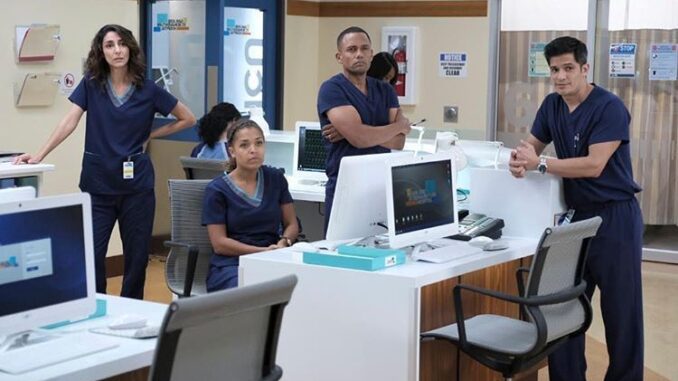
Dr. Shaun Murphy doesn’t panic when the alarms go off. He doesn’t cry when a patient flatlines. He doesn’t offer comforting clichés or place a hand on your shoulder. Instead, he does something far more powerful: he saves your life.
In the emotionally charged world of hospital dramas, doctors are often portrayed as passionate, empathetic, and emotionally available. But The Good Doctor dares to flip that image on its head. It gives us Shaun Murphy—a brilliant, autistic surgical resident whose genius lies not in what he feels, but in what he knows.
Where others see chaos, Shaun sees patterns. Where colleagues react with emotion, he responds with analysis. In an emergency, he doesn’t freeze—he calculates. And more often than not, he’s right.
But being right isn’t always enough.
Shaun’s autism shapes not just how he thinks, but how he interacts. He’s blunt where others would soften. He’s literal in a world that thrives on nuance. He speaks truth without filter—and that makes people uncomfortable. Even those who admire his brilliance struggle to connect with him emotionally. And that tension—between logic and emotion, facts and feelings—is the soul of The Good Doctor.
It’s easy to trust someone who makes you feel safe. But can you trust someone who simply knows what to do?
That’s the question The Good Doctor asks us in every episode.
Shaun doesn’t show his love through words or tears. He shows it through action. Through the precision of his incisions. Through the hours he spends studying to be better, faster, more accurate. Through his relentless commitment to saving lives—no matter the cost to himself.

And yet, for all his brilliance, Shaun faces a heartbreaking reality: his logic often isolates him. He’s accused of being cold, unfeeling, robotic. Patients sometimes reject him. Colleagues second-guess him. And perhaps most painful of all, he’s constantly forced to prove his humanity in ways no one else is.
Still, Shaun doesn’t break. He adapts. He learns—not how to feel more, but how to bridge the gap between what he feels and what others need from him. Slowly, painfully, beautifully, he earns the trust of those around him—not by changing who he is, but by showing that who he is is exactly what they need.
Because sometimes, emotions do fail. Panic sets in. Bias creeps in. Ego takes over.
But Shaun? He stays calm. He focuses. He saves lives.
And over time, the people around him begin to see that empathy doesn’t always look like eye contact or comforting words. Sometimes, it looks like tireless precision. Like radical honesty. Like refusing to give up on a patient—even when others already have.
The truth is, The Good Doctor doesn’t just explore what it means to be a good doctor. It redefines it.
It asks us: Is medicine about bedside manner—or results? Do we judge people more by how they make us feel than by what they actually do? And what if the person best equipped to save us is also the one we understand the least?
Shaun Murphy doesn’t need to cry to care. He doesn’t need to panic to prove he’s human. His strength isn’t in his emotions—it’s in his logic. And in a world overwhelmed by noise and reaction, his clarity cuts through like a scalpel.
